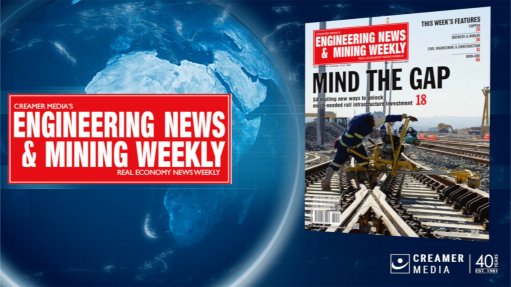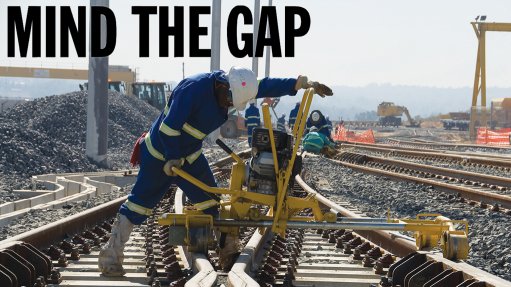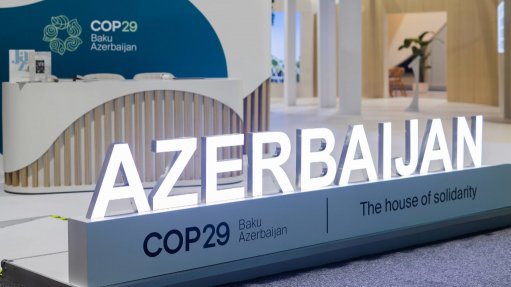Financial markets driven by politics, rather than economic fundamentals – Peregrine
The world is in an era of populism and nationalism, marked by the rapid rise of politicians echoing the message of a “selfish” State, effectively making the geopolitical landscape a treacherous one, says Peregrine Treasury Solutions.
Corporate treasury manager Bianca Botes noted in a release published on Tuesday that many global economic powerhouses are being exposed to a variety of risks as a result of geopolitics.
“This trend had its roots in the last century, when we witnessed the dissolution of united entities such as the Soviet Union, Yugoslavia and Czechoslovakia. Self-determination, the desire for autonomy and internal conflict were at the core of these splits and today the trend continues,” she said.
Botes went on to point out that perhaps the most prominent example of this today is the US, embodied by President Donald Trump and his mission to “make America great again”.
“Trump's floundering efforts to close US borders, including building a wall on the Mexican border, which is a physical representation of national sovereignty, and his heavy-handed attempts to restrict immigration, have created increasing tensions between the US and numerous other countries, including traditional allies.
“Deadlock politics are putting strain on US citizens, as well as dampening economic efficiencies. Add to this the trade spat between the US and China, which is having a tremendous effect on risk appetite in the market; we have a toxic cocktail for emerging market currencies,” Botes highlighted.
She added that, should Trump return fire to the increasing pressure from the Democratic Party, media and the judicial system, it could lead to a constitutional crisis.
Meanwhile, Botes noted that Europe was not far behind and that the rise of populism and nationalism in many of the European Union (EU) countries posed a threat to the existence of the EU.
She expects that EU Parliamentary elections in May will see a rise in the number of seats held by populists that are disrupting policies on migration, trade and enforcement of rules on member States.
“Brexit aside, cracks are showing elsewhere in Europe. A diplomatic spat between France and Italy has seen the two governments clash over various issues, including immigration. These two nations represent the third- and fourth-largest EU economies, respectively, after Germany and the UK, and the squabble could be detrimental to economic growth.”
Botes added that there are concerns regarding democratic backsliding and the rule of law in some European States, particularly Poland and Hungary, which appear to have passed laws and adopted policies that are seemingly in conflict with the EU and with democratic norms and values.
Further, as the Brexit process lurches forward, economists are near unanimous that Brexit will have an adverse effect on the British economy in the medium to long term and could, in fact, lead to a recession.
In addition, the UK's real per-capita income level is widely expected to fall.
“Even if Britain were to backtrack on Brexit now, there is considerable uncertainty regarding the potential ramifications, as some politicians have warned of a civil backlash and rioting should the country reverse its Brexit stance now, while others claim that’s simply a ploy to push Brexit through by any means possible,” said Botes.
Meanwhile, Peregrine was seeing that diminishing cooperation between countries was leading to a slowdown in innovation and economic advances – particularly in Europe, Japan, Brazil and India.
Tensions also persist in the Middle East, with six major issues dominating the region – the conflicts in Syria and Yemen, the Gulf crisis, the Iran–US standoff, the Palestinian–Israeli conflict and increased polarisation in the region. The spillover effect on the oil market and subsequent oil price continues to be felt in the forex markets, Botes said.
“Geopolitics will continue to cause volatility in financial markets, and the outcomes of these situations remain unpredictable. Such nervousness and volatility will continue for as long as uncertainty remains, meaning that we can expect continuous risk aversion and market jitters until concrete conclusions are reached.”
Comments
Press Office
Announcements
What's On
Subscribe to improve your user experience...
Option 1 (equivalent of R125 a month):
Receive a weekly copy of Creamer Media's Engineering News & Mining Weekly magazine
(print copy for those in South Africa and e-magazine for those outside of South Africa)
Receive daily email newsletters
Access to full search results
Access archive of magazine back copies
Access to Projects in Progress
Access to ONE Research Report of your choice in PDF format
Option 2 (equivalent of R375 a month):
All benefits from Option 1
PLUS
Access to Creamer Media's Research Channel Africa for ALL Research Reports, in PDF format, on various industrial and mining sectors
including Electricity; Water; Energy Transition; Hydrogen; Roads, Rail and Ports; Coal; Gold; Platinum; Battery Metals; etc.
Already a subscriber?
Forgotten your password?
Receive weekly copy of Creamer Media's Engineering News & Mining Weekly magazine (print copy for those in South Africa and e-magazine for those outside of South Africa)
➕
Recieve daily email newsletters
➕
Access to full search results
➕
Access archive of magazine back copies
➕
Access to Projects in Progress
➕
Access to ONE Research Report of your choice in PDF format
RESEARCH CHANNEL AFRICA
R4500 (equivalent of R375 a month)
SUBSCRIBEAll benefits from Option 1
➕
Access to Creamer Media's Research Channel Africa for ALL Research Reports on various industrial and mining sectors, in PDF format, including on:
Electricity
➕
Water
➕
Energy Transition
➕
Hydrogen
➕
Roads, Rail and Ports
➕
Coal
➕
Gold
➕
Platinum
➕
Battery Metals
➕
etc.
Receive all benefits from Option 1 or Option 2 delivered to numerous people at your company
➕
Multiple User names and Passwords for simultaneous log-ins
➕
Intranet integration access to all in your organisation


















